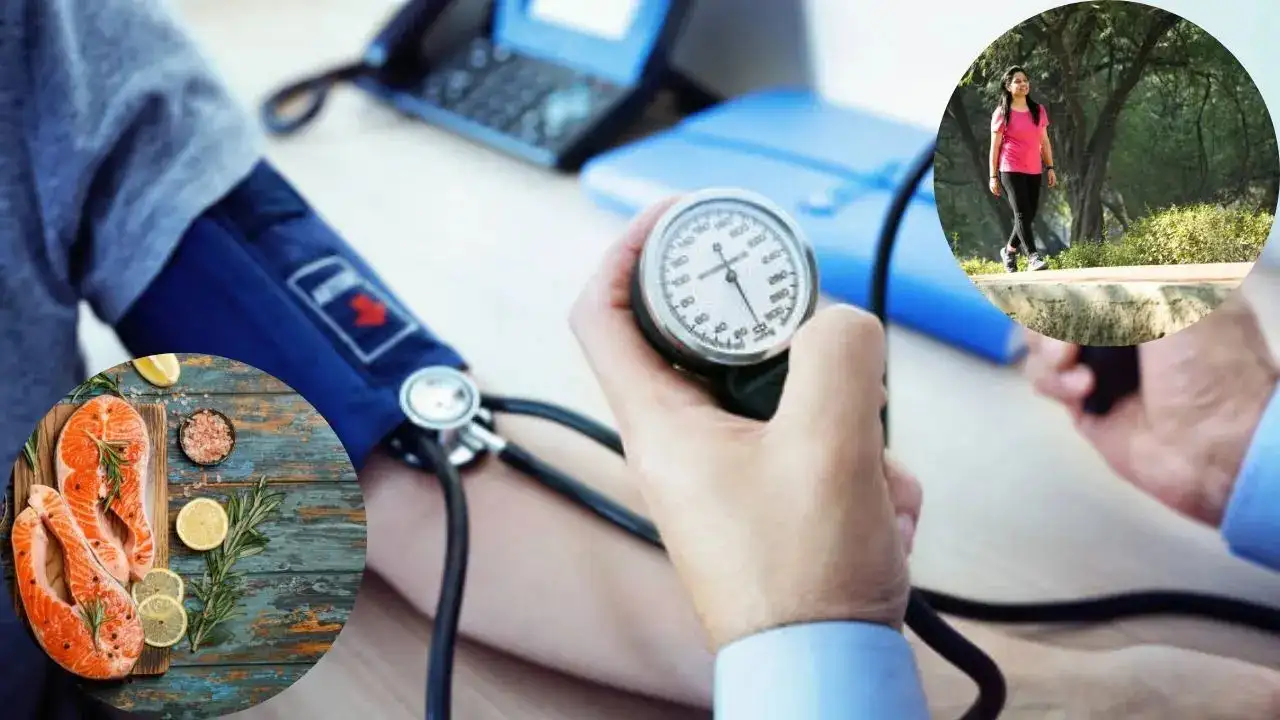
Various lifestyle changes can help reduce high blood pressure, which eliminate a major risk of heart diseases
High blood pressure levels, or hypertension, is a major condition that can be detrimental to your heart health in the long run. According to doctors, there are several medications that can help lower blood pressure; however, various lifestyle changes can also help. Even though there are no symptoms, there is a major risk of heart disease like heart attack and stroke.
Experts say most people’s target blood pressure should be below 120/80 mm Hg, but if it is more than 130/80 mm Hg, it is considered high. A few viral tips you must follow to reduce your hypertension include:
Walking after meals
Taking a 10-15-minute walk after your meals is among the best ways to reduce blood pressure. Doctors say it is linked to lower blood pressure levels, which can reduce the risk of hypertension and improve overall cardiovascular health.
Post-meal walks aid in the digestion of food, potentially reducing the risk of heartburn and aiding in the breakdown of nutrients. It also boosts blood flow to your heart and across your body - potentially reducing the risk of heart disease. After-meal walking also regulates blood sugar levels, preventing spikes that can contribute to insulin resistance and Type 2 diabetes.
Cutting back on sugar and refined carbs
While who doesn’t love eating sugary and carb-packed foods, both of these need to be restricted if you are looking to normalize your blood pressure levels. It also helps in weight loss and management.
According to studies, if you are overweight or have obesity, follow a low-carb, low-fat diet to see your diastolic blood pressure fall by an average of about 5 mm Hg and systolic blood pressure by 3 mm Hg after at least six months.
More potassium, less salt
It is advised to add more potassium to your diet and cut back on sodium to lower your blood pressure. A high salt intake increases the risk of blood pressure to dangerous levels. While it is not known why it happens, water retention and inflammation in the blood vessels may contribute.
Potassium eliminates salt and eases tension in your blood vessels. So, add foods like dried fruits, milk, yogurt, lentils, tomatoes, and spinach to your daily diet.
Quit smoking
Smoking affects your all-around health, including blood pressure. In the long term, many dangerous chemicals in tobacco spike blood pressure by damaging your blood vessel walls, causing inflammation and narrowing your arteries.
The hardened arteries cause higher blood pressure.
Eat dark chocolate
Dark chocolate is loaded with at least 70-85 per cent of cacao—which has flavonoids, an antioxidant that lowers blood pressure. Doctors say flavonoids dilate, or widen, your blood vessels.
However, chocolate that is high in sugar, fat, or calories may not be beneficial.
Adding high-protein diet
Studies say eating a higher protein diet had a 40 per cent lower long-term risk of high blood pressure. Those who combined this with a high fibre intake had a 60 per cent lower risk. Consuming protein also lowers blood pressure in the short term.
High-protein foods include fish like salmon or tuna, eggs, poultry like chicken, beans, legumes, nuts and chickpeas, and cheese.
Get Latest News Live on Times Now along with Breaking News and Top Headlines from Health and around the world.
